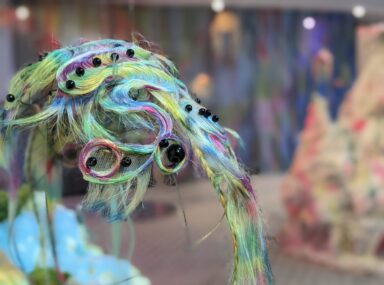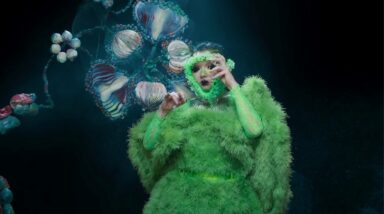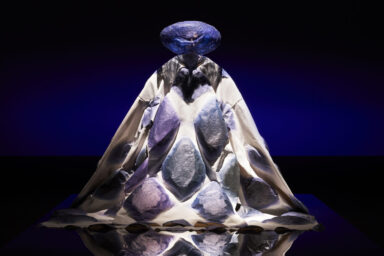The chameleonic star will play four orchestral concerts at Reykjavík’s Harpa Hall this October and November with part of the proceeds going to Kvennaathvarfid, a charity supporting women and immigrants of different origins within Iceland
Words by: Gilda Bruno
Multifaceted Icelandic artist Björk isn’t new to using her voice and otherwordly high notes as a means of fighting for positive societal change. Already in June 2020, the Reykjavík-born music icon had decided to donate the entire revenues of her discography to England’s Black Lives Matter movement. This month and the coming one, the singer-songwriter, composer, actress, and activist will perform alongside over 100 Icelandic musicians in four orchestral concerts in honour of “those who got hit hardest in the coronavirus and the Black Lives Matter movement,” as she explained in a note. On this occasion, Björk will donate 20% of the proceeds to Kvennaathvarf Women’s Shelter, an organisation devoted to providing aid to women and immigrants of different origins across Iceland.
“We are going through extraordinary times, horrifying, but also an opportunity to truly change,” Björk commented in a message to her fans. “It is demanded of us that we finally confront all racism, that we learn that lives are more important than profit, that we look inside us and fine comb out all our hidden prejudices and privileges.”
With support coming from the Icelandic Symphony Orchestra, Flute Septet Viibra, and Hamrahlíð Choir — three music institutions that have contributed to the shaping of some of the artist’s most successful tunes — the shows, all taking place at Reykjavík’s Harpa Hall and live-streamed worldwide, will enable both in-person and online listeners to fully immerse themselves into Björk’s kaleidoscopic universe. From Post, Vespertine, and Dancer in the Dark to Medulla, Biophilia, and Utopia, the artist is set to gift the public with unplugged versions of songs from her most iconic albums in a 360° celebration of the Icelandic musical genius.
“I recorded almost all of my albums with local musicians,” Björk explained in a statement. “Homogenic [was made] with an Icelandic string octet, Medulla with Schola Cantorum (an Icelandic mixed choir), Volta with 10 brass girls I found all over the island who later formed Wonderbrass, Biophilia with Langholt´s Church Girl Choir Graduale Nobili, Vulnicura with a 15-piece string ensemble, Utopia with 12 female fluteplayers who later formed the Flute Septet Viibra, Cornucopia with Hamrahlíð´s choir conducted by þorgerður ingólfsdóttir.”
“We are going to celebrate that we are all healthily exiting quarantine together by playing concerts in Harpa Music Hall for 4 weekends,” she continued.
Ahead of the premiere of her orchestral concerts, which is scheduled for tonight (8PM GMT / 9PM BST / 10PM CEST), the artist teased the audience revealing some of the background stories that led to some of her greatest hits, including Stonemilker, Hyperballad, Sun In My Mouth, Isobel, and I’ve Seen It All. About her contribution to the soundtrack of Lars Von Trier’s “Dancer in the Dark” (2000) she said:
“I remember the melody of I’ve Seen It All swirling in my head for a year or two, with parts of the string arrangement tailed behind. At the time I was listening nonstop to ‘Pavane pour infante defunte’ by Ravel. I got deeply inspired by the mood of it, the majestic grande humility is enormous! […] It was a delight to settle for the search for enormous gestures inside immense gentleness… or at least try…”
An immense gentleness that, to this very day, continuously informs Björk’s work, vision, and concrete actions. “Let’s all humbly learn together. Transform,” read the last words of the letter written ahead of the new series of concerts.“Humongous love, Björk”
In-person and online tickets for Björk’s 2021 Orchestral Concerts are available now.


